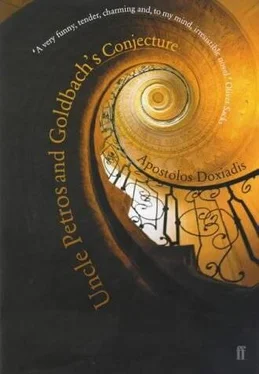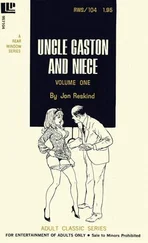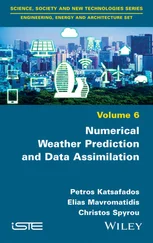In the spring of that year, Petros received an additional short communication from Hardy, announcing Srinivasa Ramanujan's death of tuberculosis, at the age of thirty-two, in a slum neighbourhood of Madras. His first reaction to the sad news perplexed and even distressed him. Under a surface layer of sorrow for the loss of the extraordinary mathematician and the gentle, humble, sweet-spoken friend, Petros feit deep inside a wild joy that this phenomenal brain was no longer in the arena of Number Theory.
You see, he had feared no one else. His two most qualified rivals, Hardy and Littlewood, were too involved with the Riemann Hypothesis to think seriously about Goldbach's Conjecture. As to David Hubert, generally acknowledged to be the world's greatest living mathematician, or Jacques Hadamard, the only other number theorist to be reckoned with, both were by now really no more than esteemed veter-ans – their almost sixty years were tantamount to advanced old age for creative mathematicians. But he had feared Ramanujan. His unique intellect was the only force he considered capable of purloining his prize. Despite the doubts he had expressed to Petros about the general validity of the Conjecture, should Ramanujan ever have decided to focus his genius on the problem… Who knows, maybe he would have been able to prove it despite himself; maybe his dear goddess Namakiri would have offered the solution to him in a dream, all neatly written out in Sanskrit on a roll of parchment!
Now, with his death, there was no longer any real danger of someone arriving at the solution before Petros.
Still, when he was invited by the great School of Mathematics at Göttingen to deliver a memorial lecture on Ramanujan's contribution to Number Theory, he carefully avoided mentioning his work on Partitions, lest anyone be inspired to look into its possible connections with Goldbach's Conjecture.
In the late summer of 1922 (as it happened, on the very same day that his country was ravaged by the news of the destruction of Smyrna) Petras was suddenly faced with his first great dilemma.
The occasion was a particularly happy one: while taking a long walk on the shore of the Speichersee, he arrived by way of a sudden illumination, following months of excruciating work, at an amazing insight. He sat down in a small beer-garden and scribbled it in the notebook he always carried with him. Then he took the first train back to Munich and spent the hours of dusk till dawn at his desk, working out the details and going over his syllogism carefully, again and again. When he was finished he felt for the second time in his life (the first had to do with Isolde) a feeling of total fulfilment, absolute happiness. He had managed to prove Ramanujan's hypothesis!
In the first years of his work on the Conjecture, he had accumulated quite a few interesting intermediate results, so-called 'lemmas' or smaller theorems, some of which were of unquestionable interest, ample material for several worthwhile publications. Yet he had never been seriously tempted to make these public. Although they were respectable enough, none of them could qualify as an important discovery, even by the esoteric standards of the number theorist.
But now things were different.
The problem he had solved on his afternoon walk by the Speichersee was of particular importance. As regarded his work on the Conjecture it was of course still an intermediate step, not his ultimate goal. Nevertheless, it was a deep, pioneering theorem in its own right, one which opened new vistas in the Theory of Numbers. It shed a new light on the question of Partitions, applying the previous Hardy-Ramanujan theorem in a way that no one had suspected, let alone demonstrated, before. Undoubtedly, its publication would secure him recognition in the mathematical world much greater than that achieved by his method for solving differential equations. In fact, it would probably catapult him to the first ranks of the small but select international Community of number theorists, practically on the same level as its great stars, Hadamard, Hardy and Littlewood.
By making his discovery public, he would also be opening the way into the problem to other mathematicians who would build on it by discovering new results and expand the limits of the field in a way a lone researcher, however brilliant, could scarcely hope. The results they would achieve would, in turn, aid him in his pursuit of the proof to the Conjecture. In other words, by publishing the ‘Papachristos Partition Theorem' (modesty of course obliged him to wait for his colleagues formally to give it this title) he would be acquiring a legion of assistants in his work. Unfortunately there was another side to this coin: one of the new unpaid (also unasked for) assistants might conceivably stumble upon a better way to apply his theorem and manage, God forbid, to prove Goldbach's Conjecture before him.
He didn't have to deliberate long. The danger far outweighed the benefit. He wouldn't publish. The 'Papachristos Partitions Theorem' would remain for the time being his private, well-guarded secret.
Reminiscing for my benefit, Uncle Petros marked this decision as a turning point in his life. From then onwards, he said, difficulties began to pile upon difficulties.
By withholding publication of his first truly important contribution to mathematics, he had placed himself under double time-pressure. In addition to the constant, gnawing anxiety of days and weeks and months and years passing without his having achieved the desired final goal, he now also had to worry that someone might arrive at his discovery independently and steal his glory.
The official successes he had achieved until then (a discovery named after him and a university chair) were no mean feats. But time counts differently for mathematicians. He was now at the absolute peak of his powers, in a creative prime that couldn't last long.
This was the time to make his great discovery – if he had it in him to make it at all.
Living as he did a life of near-total isolation, there was no one to ease his pressures.
The loneliness of the researcher doing original mathematics is unlike any other. In a very real sense of the word, he lives in a universe that is totally inaccessible, both to the greater public and to his immediate environment. Even those closest to him cannot partake ot his joys and his sorrows in any significant way, since it is all but impossible for them to understand their content.
The only community to which the creative mathematician can truly belong is that of his peers; but from that Petros had wilfully cut himself off. During his first years at Munich he had submitted occasionally to the traditional academic hospitality towards newcomers. When he accepted an invitation, however, it was sheer agony to act with a semblance of normality, behave agreeably and make small talk. He had constantly to curb his tendency to lose himself in number-theoretical thoughts, and fight his frequent impulses to make a mad dash for home and his desk, in the grip of a hunch that required immediate attention. Fortunately, either as a result of his increasingly frequent refusals or his obvious discomfort and awkwardness on those occasions when he did attend social functions, invitations gradually grew fewer and fewer and in the end, to his great relief, ceased altogether.
I don't need to add that he never married. The rationale he gave me for this, by which getting married to another woman would mean being unfaithful to his great love, 'dearest Isolde', was of course no more than an excuse. In truth, he was very much aware that his lifestyle did not allow for the presence of another person. His preoccupation with his research was ceaseless. Goldbach's Conjecture demanded him whole: his body, his soul and all of his time.
In the summer of 1925, Petros proved a second important result, which in combination with the 'Partitions Theorem' opened up a new perspective on many of the classical problems of prime numbers. According to his own, exceedingly fair and well-informed opin-ion, the work he had done constituted a veritable breakthrough. The temptation to publish was now overwhelming. It tortured him for weeks – once again, though, he managed to resist it. Again, he decided in favour of keeping his secret to himself, lest it open the way to unwelcome intruders. No intermediate result, no matter how important, could sidetrack him from his original aim. He would prove Goldbach's Conjecture or be damned!
Читать дальше









